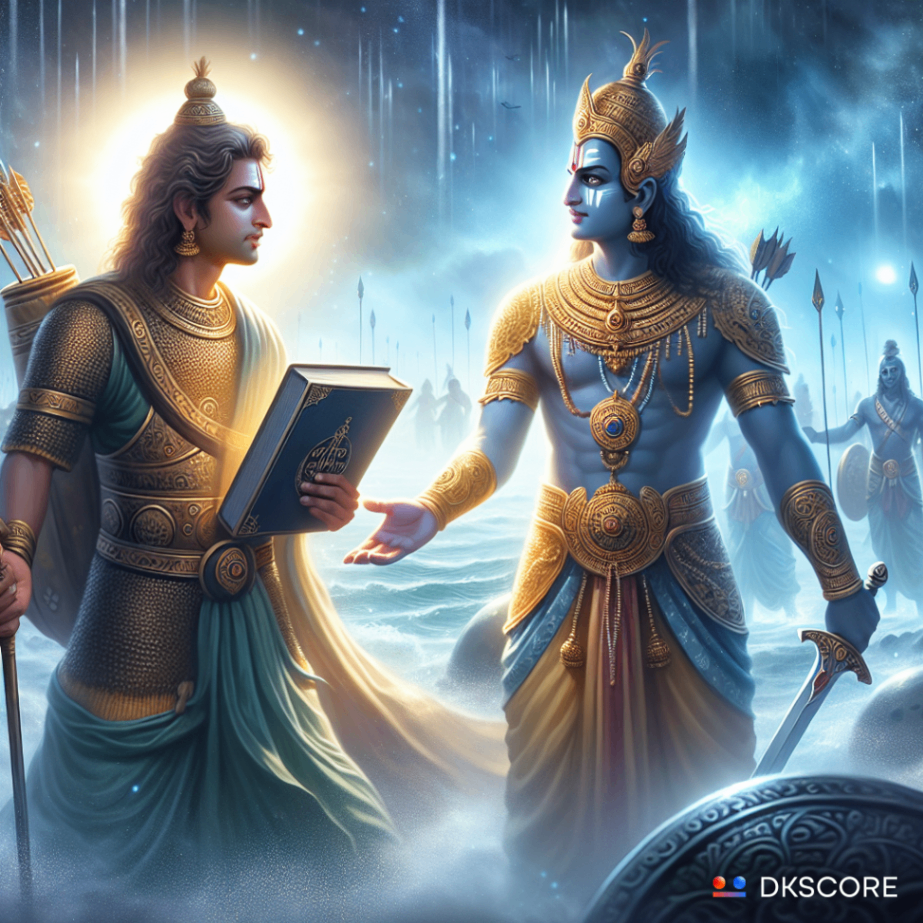Bhagavad Gita Chapter 2, often regarded as the summary of the entire Bhagavad Gita, provides profound insights into the nature of consciousness, duty, and the human mind. This chapter, also known as Geeta Adhyay 2, is foundational to understanding the principles of Dharma (righteousness), the importance of controlling ones senses, and the practice of performing actions without attachment to the results, a concept known as Sanka Yoga.
Spiritual Significance of Bhagavad Gita Chapter 2
The second chapter of the Bhagavad Gita is especially relevant during spiritually significant times, such as during a solar eclipse. This period, considered inauspicious for material activities, is deemed highly auspicious for spiritual practices. Engaging with the teachings of Bhagavad Gita Chapter 2 during such times can deepen ones spiritual understanding and practice.
Controlling the Mind and Senses
A central theme in Bhagavad Gita Adhyay 2 is the importance of controlling the mind and senses. The struggle between the soul (jeeva) and the material desires symbolized by the eclipse is a powerful metaphor for the challenges faced in spiritual practice. Gita Chapter 2 emphasizes the need to detach from desires and focus on duty without being swayed by the fruits of ones actions.
The Battlefield of Kurukshetra: A Reflection of the Human Condition
The chapter begins with Arjuna, a great warrior, in a state of utter confusion and despair on the battlefield of Kurukshetra. This scenario reflects the dilemmas we all face in life when confronted with difficult decisions. Arjunas mind is clouded by emotions, and he is unable to discern the right path, much like how we sometimes struggle with our own decisions. This chapter, particularly Bhagavad Gita Chapter 2 Verse 47, highlights the importance of focusing on duty and not being attached to the outcomes of our actions.
Lord Krishnas Guidance: The Path of Wisdom and Courage
Lord Krishnas guidance to Arjuna in Bhagavad Gita Chapter 2 serves as a timeless lesson in understanding the power of intellect and the importance of courage. Arjunas justifications for not wanting to fight are rooted in emotional turmoil, but Krishna urges him to rise above these feelings and act in accordance with Dharma. This guidance is crucial for anyone seeking to understand how to make decisions with clarity and purpose.
The Concept of Consciousness in Bhagavad Gita Chapter 2
One of the key teachings in this chapter is the concept of consciousness. What is consciousness as per Bhagavad Gita Chapter 2? It is the awareness of ones duty and the understanding that the soul is eternal, transcending the physical body. This realization is essential for overcoming fear and confusion, as it shifts the focus from material concerns to spiritual truths.
Surrender and the Beginning of True Learning
As Arjuna surrenders to Lord Krishna, he shifts from a state of confusion to one of receptiveness, ready to learn the ultimate truths. This moment marks the beginning of the actual teachings of the Gita, where Krishna, the Vishva Guru, imparts wisdom that transcends time and place. The surrender to a higher wisdom is a crucial step in the spiritual journey, as it opens the path to true understanding.
The Wise Do Not Lament: A Lesson in Detachment
Lord Krishnas teaching in Bhagavad Gita Chapter 2 Verse 57 reminds us that the wise do not lament over the living or the dead. This lesson in detachment is pivotal in understanding how to navigate lifes challenges without becoming overwhelmed by emotions. It teaches the importance of maintaining equanimity in both joy and sorrow, a key to achieving inner peace.
The Essence of Bhagavad Gita Chapter 2
The teachings of Bhagavad Gita Chapter 2 are not just philosophical musings but practical guidelines for living a life of righteousness and purpose. Whether it is controlling the senses, understanding the nature of consciousness, or performing ones duty without attachment, this chapter provides a comprehensive framework for spiritual and moral growth.
```




















